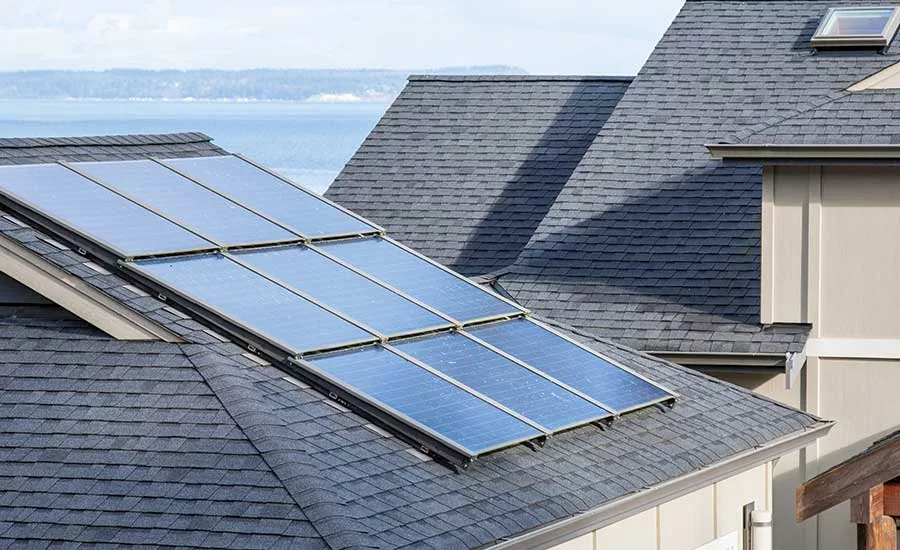Massachusetts Lawmakers Examining Bills to Mandate Solar Roofs on New Homes and Buildings

The California Energy Commission adopted a sweeping change to the California Code of Regulations — effective Jan. 1, 2020, requiring new residential homes in California to have solar panel technology.
Massachusetts may become the second state that requires solar power systems to be installed on the roofs of new buildings thanks to two proposed bills.
The joint bills filed in the Senate and the House propose that nearly every new commercial and residential building be outfitted with solar panels. Titled “An act increasing solar rooftop energy,” S. 1957 and H.2825 state that “all new construction shall be built to accommodate the installation of a solar energy system.”
Democrats Sen. James Eldridge, Rep. Jack Lewis and Rep. Michael Connolly are the filing legislators. The bills are under review by the Senate Ways and Means Committee. If approved, they will head to the Senate for a vote.
“Our legislation represents a giant leap forward in our transition away from dirty fossil fuels to clean, renewable energy," said Connolly in a written statement. "Combating climate change will require robust solutions, so I’m excited the bill reached this legislative milestone and for the opportunity to continue working with my colleagues and stakeholders in taking this bold step forward for the planet.”
In 2018, California passed a similar law that mandates the installation of solar power on new homes and buildings as a green initiative to offset the dependency on fossil fuels. The California law goes into effect on Jan. 1, 2020.
Amendments to Massachusetts’ building code would be declared within one year from the bill’s passing. These amendments would establish standards that must be met for new construction to accommodate solar energy systems, including static load roof strength and non-solar rooftop equipment placement.
In addition to these requirements, the act allows for the state to consider other roofing regulations. These include roof orientation and angle, roof types compatible with a solar installation that needs little to no roof penetrations, and a conduit for wiring from roof to electric panels.
The bills state solar systems would have to produce certain amounts of energy. For example, single-family homes would have to produce 100 percent of a home’s average electricity demand. However, single- and multi-family dwellings can have their requirements reduced by up to 25 percent if installed alongside storage batteries with certain capacities.
Affordable housing developments may be exempted from the act as well as buildings that lack the necessary solar exposure. Anyone found in violation of the act would pay up to $10,000 per instance or twice the amount it would cost to construct a building to meet the act’s requirements.
According to a study by the Environment Massachusetts Research & Policy Center, the act would add more than 2,300 megawatts of solar capacity by installing rooftop solar panels on all new homes between 2020 and 2045, effectively doubling the state’s current solar capacity. This would reduce carbon emissions by 1.9 percent compared to 2015 amounts.
A second set of bills are also awaiting committee approval. These bills — House bill H.2895 and Senate bill S.1995 — would require solar panel systems to be installed on new or renovated state-owned buildings. Like the other set of bills, there are certain energy requirements to meet as well as exemptions for buildings with a lack of solar exposure.
Looking for a reprint of this article?
From high-res PDFs to custom plaques, order your copy today!









